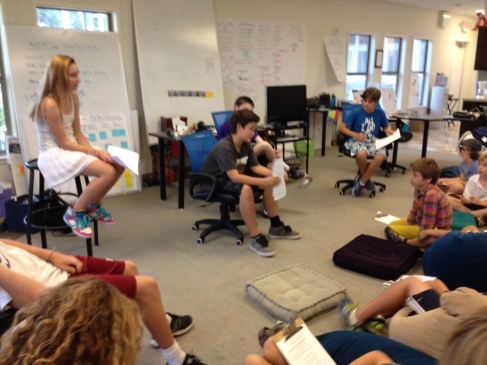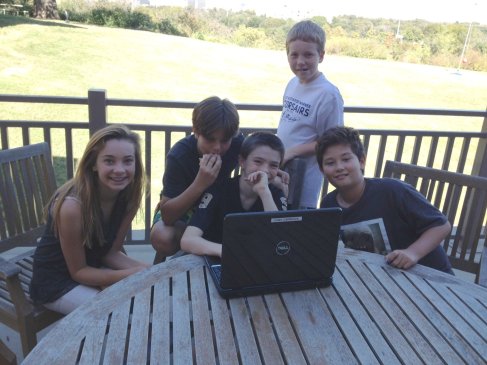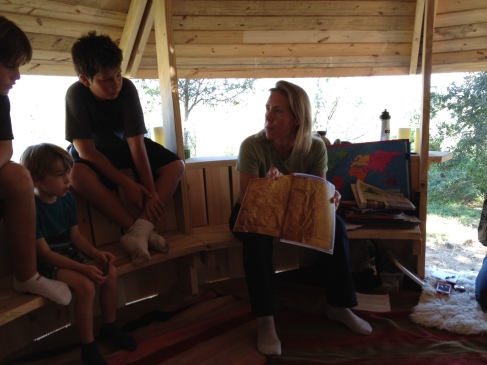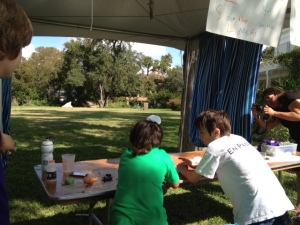One of the biggest surprises about guiding Eagles has been the realization that people learn at a 10X rate when they are inspired, and hardly at all when simply instructed to do so.
Of course, this isn’t surprising when you think about your own learning. Who cares about learning something simply because you are ordered to do so? It also explains why most corporate training fails. Training is for guinea pigs; human beings want to be free to accept or reject challenges, not to be trained..
As Guides, much of our energy goes into creating challenges that matter to Eagles. Difficult, meaningful – and yes, fun challenges. Our goal is to “inspire,” a word whose root means “to breathe life into.”
Long lasting inspiration requires an important quest or journey – a clear path to a worthy Grail. We need an end that matters to our Eagles and a map we can continually refer to update our progress as a group, as in “you are here” and “here’s where we are going together.”
Below is an example of such a map from this section of the gaming quest.

In the gaming project, Eagles have entered design mode. To unlock the final challenge of designing a game for the Game Expo, this week students are working through a series of mini game creation challenges.
Yesterday they designed simple, single-player games of luck, and then manipulated the rules to make their games easier or harder to win. Today they designed games of skill, then added an element of luck to these games to see which version playtesters enjoyed more.



Tomorrow Eagles will get a taste of online game design on Gamestar Mechanic. Next week, students will choose whether they want to design an online or offline game for the Game Expo at the end of the session, at which they will pitch their games to parents and fellow eagles.
Is creating games a trivial skill? Not in the 21st century. Arguably, being able to weave a compelling story and keep people engaged may be one of the most important 21st century skills of all.
In storytelling, images can be even more important than text. And in the Hero’s Journey story, dragons are not only possible, but to be expected. That’s why Eagles have been working in Art on drawing dragons. As they create, Eagles have been listening to “A Tale of Two Cities,” immersed in images drawn with words, as they create visual metaphors of the challenges each will face on their hero’s journey.
Here’s a sample of dragons in the making.

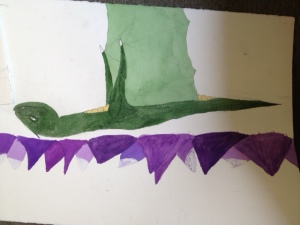

Inspiration, storytelling and maps – keys to learning in the 21st century.
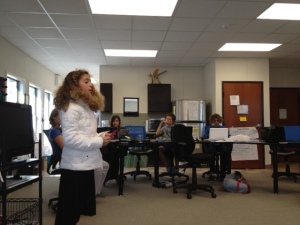










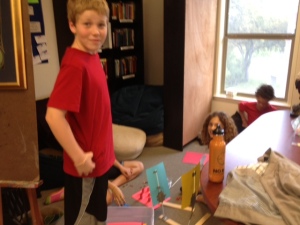
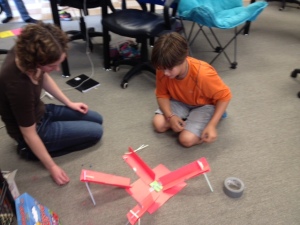
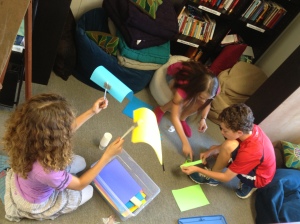


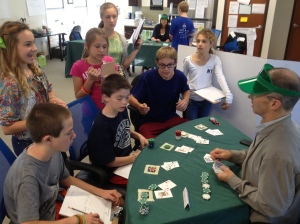
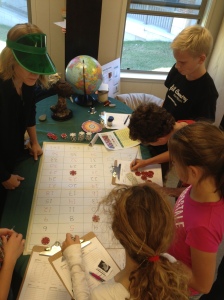
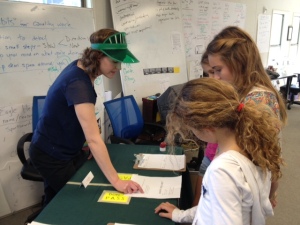
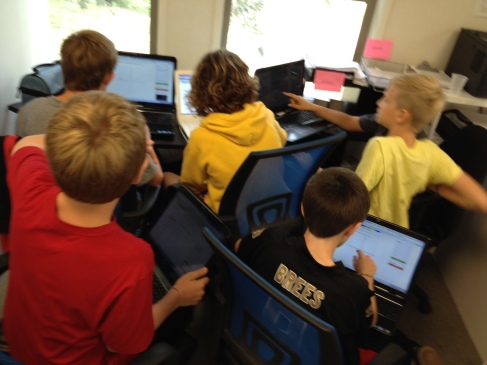
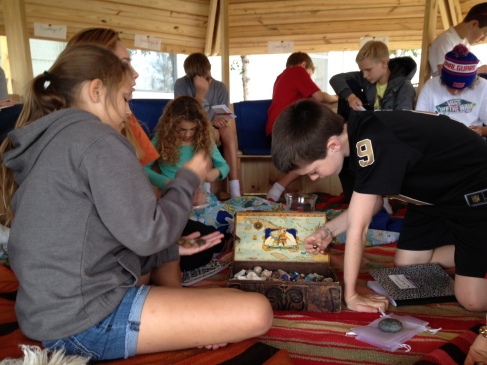
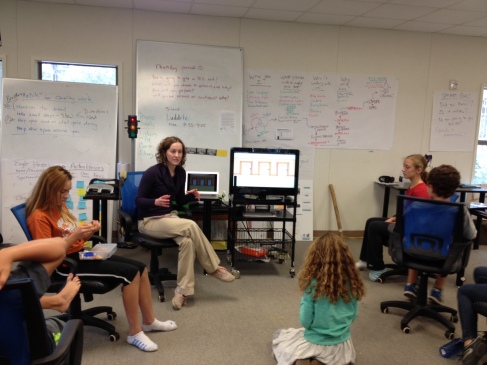
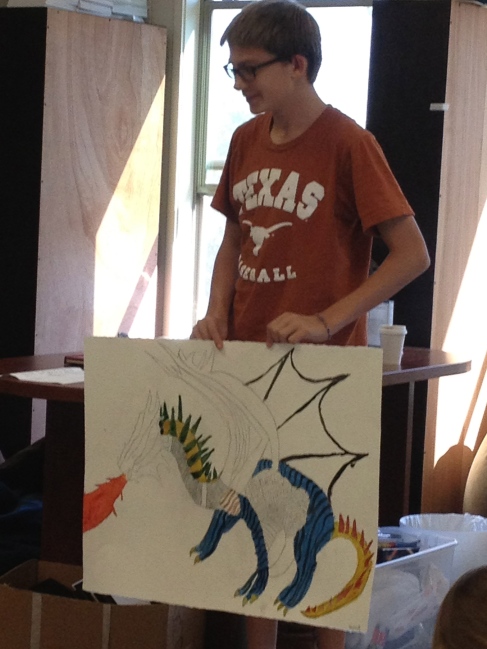
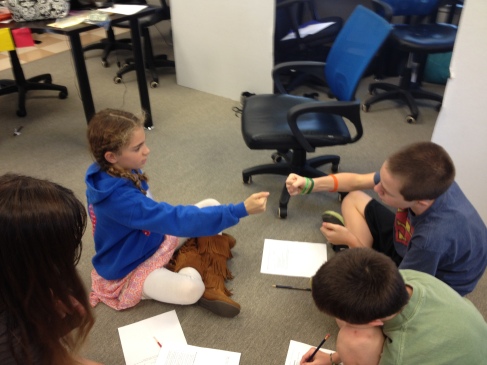
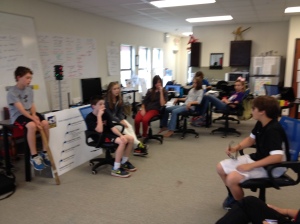 The student council ran the meeting as a streamlined huddle, showing respect for all points of view yet honoring their commitment to stay on topic, avoid repetition, and keep it to fifteen minutes. Grievances were aired, solutions proposed, disagreements weathered. Perhaps a stronger community emerged from the wobbles of dissent.
The student council ran the meeting as a streamlined huddle, showing respect for all points of view yet honoring their commitment to stay on topic, avoid repetition, and keep it to fifteen minutes. Grievances were aired, solutions proposed, disagreements weathered. Perhaps a stronger community emerged from the wobbles of dissent.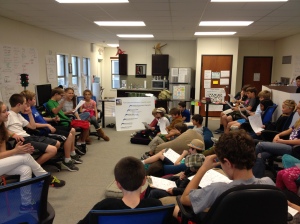 A larger group, including some Acton 3rd-5th graders, came together for more decision making at the end of day, as the Green Light panel reassembled to hear presentations from the film crews working on The Bandit and The Thing in the Dark. “Asking us questions will make our work stronger,” one student advised. Ellie did a fabulous job moderating, the presentations were professional and engaging, and once again the projects received green lights all around.
A larger group, including some Acton 3rd-5th graders, came together for more decision making at the end of day, as the Green Light panel reassembled to hear presentations from the film crews working on The Bandit and The Thing in the Dark. “Asking us questions will make our work stronger,” one student advised. Ellie did a fabulous job moderating, the presentations were professional and engaging, and once again the projects received green lights all around.



